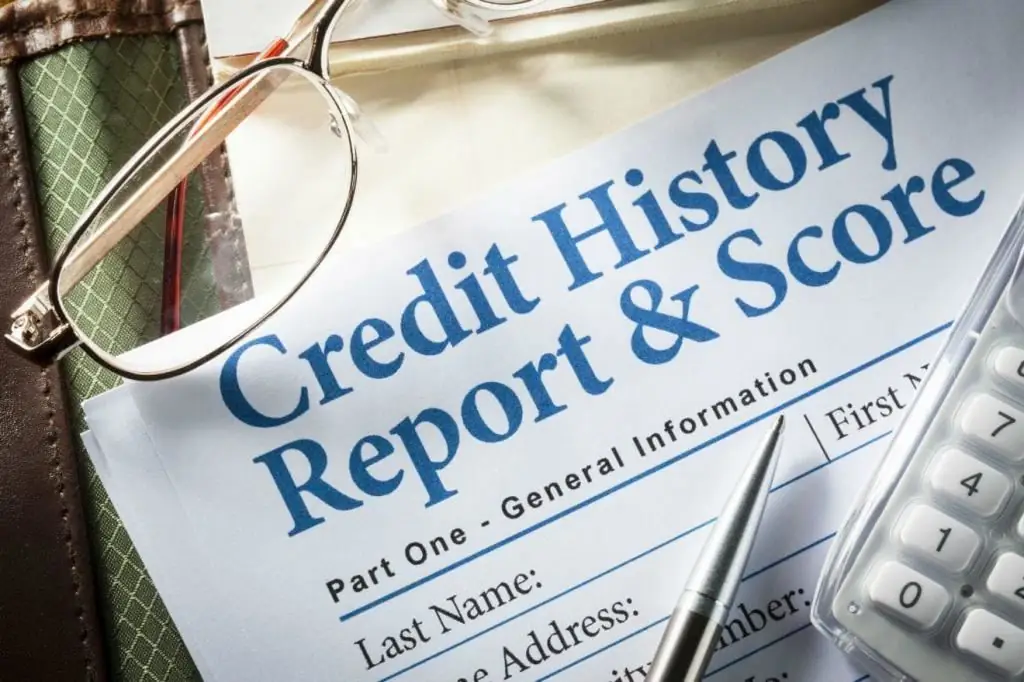2026 Author: Howard Calhoun | calhoun@techconfronts.com. Last modified: 2025-01-24 13:10:26
Even responsible borrowers have situations when, for some unknown reason, they are denied a loan. Banks have the right not to tell customers the reason for their decision. To understand why this is happening, you can order a report from the credit bureau.
It is, contrary to popular belief, simple and safe. Every citizen who has a passport can apply to the organization.
What is a credit bureau?
A credit bureau is a commercial institution that is licensed and registered in the public register. It is engaged in the collection, systematization and storage of information about the credit histories of subjects, including loans, loans and fulfillment of obligations on them, and personal data of borrowers.
Banks and microfinance companies are required to cooperate with one or more organizations, they must regularly send there information about all changes in the IC of their clients.

An individual's credit file may be held by more than one bureau. To find out where it is located, the borrower needs to contact the Central Directory. This institution aggregates all the data, but does not directly provide reports.
As of July 2018, according to the Central Bank, 13 credit bureaus were registered in the register. This figure will change if one of them is reorganized or a new one is registered.
Leaders in their industry:
- NBKI;
- "Equifax";
- OKB;
- BKI "Russian Standard".
Goals and objectives
In Russia, an orderly system for collecting and storing credit histories was introduced in 2005, but still not all citizens know what goals the creation of the BKI pursued. This is:
- Creating a unified database of borrowers and information on their loan obligations.
- Collecting up-to-date credit histories of subjects.
- Reducing the risks of lenders by assessing the reliability and responsibility for fulfilling the obligations of potential borrowers.
- Reducing the waiting time for a lender's decision to issue a loan or a decision to refuse.
- One of the tasks of credit bureaus (CHBs) is to minimize the risk of forgery of information or illegal data correction.
BKI functions
They are as follows:
- Services for the provision of reports on a paid and free basis to CI subjects at their request on the basis of a written application or other document certified by an electronic signature. Every citizen once a year has the right to know his financial file free of charge.
- Providing the service of providing reports to CI users, including creditors, authorities, notaries, the Central Bank on the basis of a contract.
- Analyzing the information, the credit bureau determines the personal scoring of each CI subject. Scoring is required for some types of lending.
- Provision of personal information from the title part and transfer to the Central Catalog of information about the formation of the subject's CI or changing his identification data. This credit bureau is required to complete this within 2 business days.
- Creating a credit history subject code.
- Also, the organization sends information about the cancellation of credit files to the CCCH.
- BKI provides the source with the opportunity to correct previously transmitted information, provided that the subject or user confirms the fact of the inaccuracy of the previous data.
- Supervise the activities of users of credit histories.
- CBI must protect the personal data of subjects from illegal access, information leakage, blocking, deletion or unauthorized modification of data.


National Credit Bureau
This commercial organization was founded in 2005. At the moment, it is one of the largest CBIs, which covers 40% of the industry market, and the volume of credit histories stored in it exceeds 55 million. More than 1,000 organizations cooperate with the NBCH, including Alfa-Bank , Bank Vozrozhdenie, Renaissance-Credit, Rusfinance, as well as many other banking and microfinance institutions.
This bureau is distinguished by continuous improvements aimed at reducing the risk of lenders in approving and disbursing loans, scoring borrowers, and ways to detect fraud. The services provided by the NBCH are in most cases unparalleled.
Equifax

Equifax Credit Bureau has an international status, it started its activity in 1899 in the state of Georgia (USA). At the moment it has representation in 24 countries of the world. Equifax in Russia has signed contracts with 2 thousand companies, its database contains 148 million credit histories of individuals and legal entities.

The head office is located in Atlanta, in the Russian Federation, the legal address of the Equifax credit bureau is as follows: Moscow, st. Kalanchevskaya, 16, building 1.
United Credit Bureau
This Russian company emerged as a result of the merger of two bureaus: Experian-Interfax and Infocredit. In the company "Infocredit" 50% of the shares belonged to Sberbank, which in 2009 acquired a share (50%) also in "Expirian-Interfax". The merger process lasted from 2009 to 2012
"Expirian-Interfax" was formed in 2004, and in 2011 it was renamed into OKB - "United Credit Bureau". Atthe merger of the companies retained the name.
For 2018, the main shareholder - Sberbank, has the largest stake - 50%, the rest is distributed between Experian and Interfax. Previously, Sberbank did not give access to other credit and non-credit organizations. Things have changed since the merger.
The BKI database stores 331 million credit reports from 89 million subjects. More than 600 banks, microfinance and insurance companies cooperate with OKB.
Russian standard
The Bureau started its work in 2005, but during the first 3 years it cooperated with only one bank of the same name. For this reason, its database contains significantly fewer credit histories (15 million dossiers). Since 2008, the management of the organization decided to expand the scope of cooperation in order to have more complete and up-to-date information.
This BCI works with individuals and legal entities, each of the subjects can request a report through their personal account on the site if they are already a client of Russian Standard Bank.
How to change incorrect information?
Although the CI data transmission system is automated, employees of credit institutions enter information, and they are not immune from accidental errors. One of the functions of the bureau is the ability to correct incorrect information if there is confirmation.
If the subject of the credit report has noticed an error, he must complete the application, and then send or take it himself to the bureau that serves his financial institution. The application recommends in detailstate the problem, backing it up with supporting documents:

- If closed credit is shown as active, please attach a copy of the account closure application or payment receipts.
- If there are delays with which the borrower does not agree, payment documents will also help, as they contain the time and date of the operation.
Important: the financial institution that submitted incorrect data will correct the error. By law, a claim can be submitted directly to him, but practice shows that this way the process will drag on for a long time or the borrower will be refused altogether.
It is much faster to do this through the CBI, because upon receipt of the application, the credit bureau will check the information and send the documents to the financial institution, which is obliged to respond and correct the error. The entire procedure takes 30 days.

Banks, when considering an application for a loan, do not check the accuracy of the CI, by default it is considered that it is correct in the CBI. Therefore, it is in the interests of the subject of the credit file to request a report at least once a year to control information.
Recommended:
Management process - description, objectives, functions and definition

All enterprise systems have their own organizational structure, thanks to which there is a management process. Every person who has chosen a career as a manager and wants to achieve high performance in it needs to know about management processes
Creating a sales department: recruitment, goals and objectives

How to create a sales department from scratch: building an organizational structure, recruiting, developing a sales system. What are the goals, tasks and functions of the sales department and how to make sales grow when such a department appears
Horizontal division of labor is The levels of management in the organization, the concept of goals and objectives

For the efficiency of the enterprise, horizontal and vertical division of labor is used in management. It provides for the detailing of the production process and the distribution of powers between managers of different levels. In order to improve the performance of the company, it is necessary to know the principles of the division of labor, as well as correctly determine the goals and objectives of the organization
TQM principles, goals and objectives

This article will answer questions about what the concept of TQM (Total quality management) is, what its basic principles are, and it will also be possible to find out the methodology for implementing the TQM philosophy and understand how this management process will affect the activities of the organization
Technological preparation of production: methods, goals and objectives

An important moment in the launch of production is the preparation of the enterprise for the release of new products. To this end, systems have been developed in each country to prepare enterprises for the launch of new production lines and the compliance of ongoing technological changes with certain established standards

